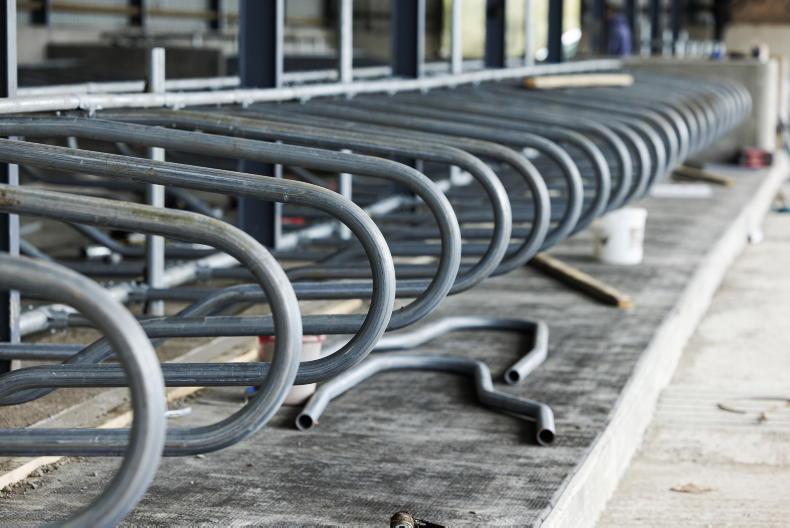In February, Ulster Bank announced its decision to withdraw their banking activities and associated services from the Republic of Ireland on a phased basis over the next few years.
The bank’s parent company, NatWest, made the announcement, citing lack of profitability as the main reason for the withdrawal.
Following that announcement, it was reported that both PTSB and AIB were engaging in talks with regard to Ulster Bank’s small and medium enterprise loan books.
This includes its mortgages (€20bn), retail and commercial loan books (€4bn) and current and deposit accounts.
Ulster Bank continues to offer a full banking service via its branch network, online and normal channels for existing and new customers through this transition.
Acquire
Analysts expect PTSB Bank to end up acquiring about €9bn of Ulster Bank mortgages and small business loans. This will likely include both current and deposit accounts.
Bank accounts at Ulster Bank continue to operate as before.
What happens over the next few years, and depending on what type of accounts you hold with Ulster Bank, will determine what you will need to do in the future.
Mortgage holders
Ulster Bank mortgage holders do not need to do anything currently, except continue to make your repayments as normal.
If you have applied for an Ulster Bank mortgage, it should progress as normal, whether it be approval in principle or progressing to full drawdown.
Ulster Bank has confirmed that if it sells its mortgage loan book to another lender, all term and conditions will be honoured, such as interest rates and existing terms.
In advance of this, you have the choice to switch your mortgage to another lender if you wish.
Be careful if you have a tracker mortgage rate, as this rate is no longer available.
If Ulster Banks sells your mortgage to a new lender as part of a loan book sale, you will keep the tracker rate, but not if you switch the mortgage yourself.
Current account holders
All current accounts held at Ulster Bank are continuing as normal, but it is likely these will eventually move to PTSB.
All existing bank arrangements (such as direct debits, standing orders and all other payment agreements) are continuing as normal.
However, it is likely you will need to make arrangements for a new current account, with a new lender, unless you are happy to become a PTSB current account holder eventually.
Ulster Bank is obliged to give its customers two months notice if switching accounts to a new lender.
Switching current accounts between banks can be difficult.
The Central Bank of Ireland has a switching code that is designed to make the process as quick and easy as possible. All banks are obliged to comply with this code.
Ulster Bank holds circa 500,000 current accounts, which will need to be switched to PTSB if this deal goes ahead.
The technology of these two banks will be different and perhaps not as compatible as required to make this task an easy one.
It could involve manual intervention, which could lead to deeply unsatisfied customers, due to the possibility of human errors.
Switching thousands of current accounts involving direct debits, standing orders and many other payment arrangements is not an easy task for any bank, and very dependent on high-quality technology.
If you decide to switch your current account:
Decide on your new provider and avail of the switching pack available. You will need to give your new provider proof of ID and address as well as three or six months of bank statements. If you have an existing overdraft, you will need to make an application to your new provider before switching. Any existing overdrawn balance with Ulster Bank will need to be repaid before moving.Notify anyone who lodges money to your current account of your new account details well in advance of switching.Decide on a date to switch, your new bank is obliged to ensure your new current account is up and running within 10 working days of the agreed switching date. Pick a switching date where the activity on your account will be low.All direct debts and standing orders should transfer to your new bank account. Ulster Bank is responsible for notifying these companies of your new bank details. It is no harm for you to contact these companies yourself too to check if they have received your new bank details. Switching bank accounts can be stressful, it is no harm to be prepared.
Read more
Money Mentor: avoid scams and be wary of unauthorised finance providers
Mediation and resolving family farm disputes
In February, Ulster Bank announced its decision to withdraw their banking activities and associated services from the Republic of Ireland on a phased basis over the next few years.
The bank’s parent company, NatWest, made the announcement, citing lack of profitability as the main reason for the withdrawal.
Following that announcement, it was reported that both PTSB and AIB were engaging in talks with regard to Ulster Bank’s small and medium enterprise loan books.
This includes its mortgages (€20bn), retail and commercial loan books (€4bn) and current and deposit accounts.
Ulster Bank continues to offer a full banking service via its branch network, online and normal channels for existing and new customers through this transition.
Acquire
Analysts expect PTSB Bank to end up acquiring about €9bn of Ulster Bank mortgages and small business loans. This will likely include both current and deposit accounts.
Bank accounts at Ulster Bank continue to operate as before.
What happens over the next few years, and depending on what type of accounts you hold with Ulster Bank, will determine what you will need to do in the future.
Mortgage holders
Ulster Bank mortgage holders do not need to do anything currently, except continue to make your repayments as normal.
If you have applied for an Ulster Bank mortgage, it should progress as normal, whether it be approval in principle or progressing to full drawdown.
Ulster Bank has confirmed that if it sells its mortgage loan book to another lender, all term and conditions will be honoured, such as interest rates and existing terms.
In advance of this, you have the choice to switch your mortgage to another lender if you wish.
Be careful if you have a tracker mortgage rate, as this rate is no longer available.
If Ulster Banks sells your mortgage to a new lender as part of a loan book sale, you will keep the tracker rate, but not if you switch the mortgage yourself.
Current account holders
All current accounts held at Ulster Bank are continuing as normal, but it is likely these will eventually move to PTSB.
All existing bank arrangements (such as direct debits, standing orders and all other payment agreements) are continuing as normal.
However, it is likely you will need to make arrangements for a new current account, with a new lender, unless you are happy to become a PTSB current account holder eventually.
Ulster Bank is obliged to give its customers two months notice if switching accounts to a new lender.
Switching current accounts between banks can be difficult.
The Central Bank of Ireland has a switching code that is designed to make the process as quick and easy as possible. All banks are obliged to comply with this code.
Ulster Bank holds circa 500,000 current accounts, which will need to be switched to PTSB if this deal goes ahead.
The technology of these two banks will be different and perhaps not as compatible as required to make this task an easy one.
It could involve manual intervention, which could lead to deeply unsatisfied customers, due to the possibility of human errors.
Switching thousands of current accounts involving direct debits, standing orders and many other payment arrangements is not an easy task for any bank, and very dependent on high-quality technology.
If you decide to switch your current account:
Decide on your new provider and avail of the switching pack available. You will need to give your new provider proof of ID and address as well as three or six months of bank statements. If you have an existing overdraft, you will need to make an application to your new provider before switching. Any existing overdrawn balance with Ulster Bank will need to be repaid before moving.Notify anyone who lodges money to your current account of your new account details well in advance of switching.Decide on a date to switch, your new bank is obliged to ensure your new current account is up and running within 10 working days of the agreed switching date. Pick a switching date where the activity on your account will be low.All direct debts and standing orders should transfer to your new bank account. Ulster Bank is responsible for notifying these companies of your new bank details. It is no harm for you to contact these companies yourself too to check if they have received your new bank details. Switching bank accounts can be stressful, it is no harm to be prepared.
Read more
Money Mentor: avoid scams and be wary of unauthorised finance providers
Mediation and resolving family farm disputes










SHARING OPTIONS